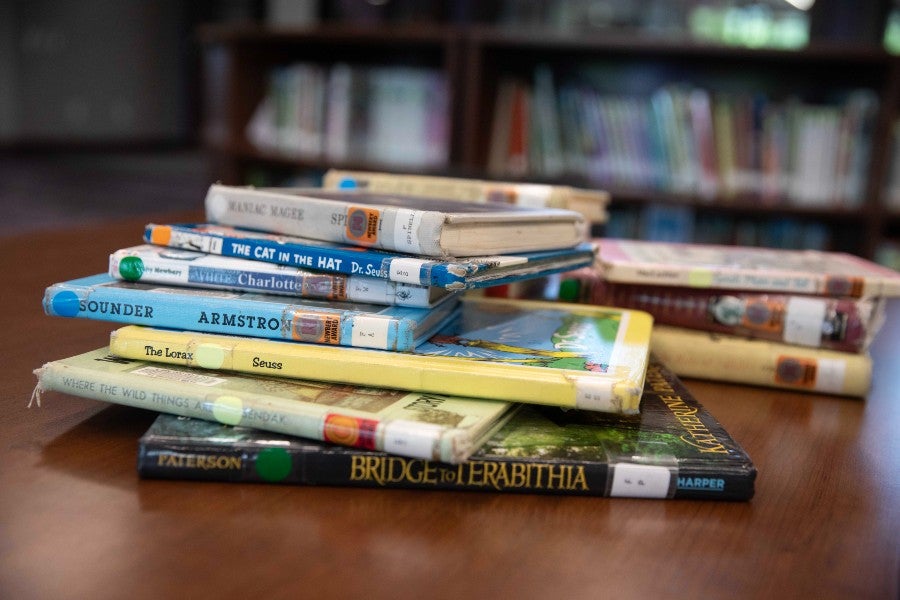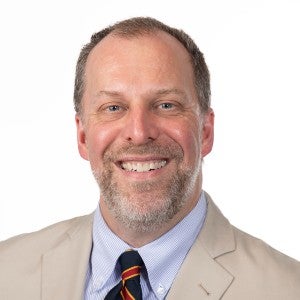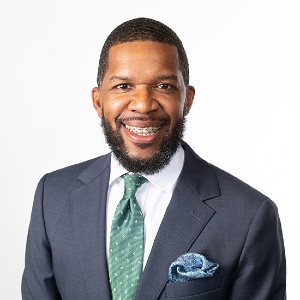Opening windows to perspective
New books by faculty have hit bookshelves in the past year, and more are slated for 2026.
Janel Shoun-Smith | 615-966-7078 |

With new books hitting digital bookshelves in 2024 and 2025, and more slated for 2026, Lipscomb’s faculty are adding their voice to important conversations in today’s society. Through academic scholarship and the act of writing, Lipscomb faculty work to expand horizons, broaden perspectives and, as Plato argued, “give life to everything.”
Topics explored by faculty throughout the 2024-2025 school year included the life of an evangelical leader of the past and life in the booming, creative East Nashville of today; how the evangelical community affects political polarization and deep learning in a digital world; stories we tell children over the past 60 years and stories Egyptians told on the walls of an ancient temple.
See the list below of books by Bisons now available for purchase, and read on to learn more about what topics are on the horizon for 2025 and 2026 from Marc Schwerdt, Scott Bledsoe, Emily Mofield and Aaron Howard.
- Faithful Defiance: Marshall Keeble’s Life and Legacy, by Dean of the College of Bible & Ministry Leonard Allen;
- The Ballad of the Lost Dogs of East Nashville, by Visiting Professor of Music Industry Studies John J. Thompson;
- The Iconography of Humiliation in New Kingdom Egypt: The Depiction and Treatment of Bound Foreigners, by Chair and Associate Professor of Archaeology and Ancient History Mark Janzen; and
- The Carnivale Interviews: Testimonies of the Supernatural, by Associate Professor and Director of Graphic Arts Carlos Hooper.

Marc Schwerdt
Dr. Marc Schwerdt (BA ’93)
Associate Professor and Chair of History, Politics and Philosophy
Under Contract with Lexington Press
You would be hard pressed to find a child who didn’t grow up loving to read Dr. Seuss books, but Schwerdt was inspired by Dr. Seuss in a different way, much later in life.
During his graduate school years in political science, a professor introduced Schwerdt to the concepts of public service portrayed in Dr. Seuss books (think Horton Hears a Who!). Then later a fellow graduate student’s librarian mother pointed out the exact opposite, that actually Dr. Seuss was pretty subversive in regards to the established order (think Cat in the Hat).
After having these conflicting conversations, Schwerdt became interested in looking at other children’s books to see what civic education messages they may also be sending. The idea ended up becoming his dissertation and the focus of his first two peer-reviewed published articles.
Twenty years later, Schwerdt thought the time was right to expand his doctoral research into a general survey of the portrayal of Democracy and its aspects and components within children’s literature. His survey includes both selected best-sellers and the Newbery Award winner in each year from 1960 to 2023.
Schwerdt has developed a content instrument to measure 13 aspects of Democracy, to show the positive or negative presence of civic and political concepts in his chosen children's literature, which includes everything from Harry Potter to Beatrix Potter, from Judy Bloom to Berenstain Bears.
Schwerdt's review doesn't really make a comment on the outcome of the plot of the book, or the moral rightness or wrongness of characters’ actions, instead it analyzes characters’ behavior and other characters’ reactions using the content instrument, that measures aspects such as civic disposition (independence), civic disposition (respect of individual worth), justice and fairness, and political rights.
For example, according to Schwerdt’s content instrument, if characters are able to speak openly without suffering negative consequences such as punishment or being ostracized, that shows the presence of political rights, defined as “the power of participation and control of government embodied in certain political rights, such as freedom of speech and the press.” If characters hesitate or avoid speaking openly because they fear the consequences, this shows opposition or a lack of support for political rights. Both are harmful to our public square, said Schwerdt.
In another example, respect of individual worth is considered one character trait important to the “preservation and improvement of American constitutional democracy.” Therefore, consideration shown for the feelings or circumstances of characters portrayed as evil, in the wrong or disrespectful would indicate a respect for individual worth and human dignity. If no effort is made to understand why a character is evil, acts disrespectful or in the wrong, that indicates a lack of respect for individual worth and human dignity.
Schwerdt’s updated analysis, which he expected to complete this summer thanks to an institutional grant from Lipscomb, has found that while explicit political messages are rare in children’s literature, the stories are rich with civic content that aligns with recognized civic education standards, he said.
“For most of the books, you have to dig to get any kind of political content out of it, but there is a lot of civic content as opposed to partisan content,” he said.
“I would like people to understand that politics is not really separate from mainstream life, and it is not really about partisanship. It is about citizenship, and being a good citizen is something we have really neglected. I would like to bring that back into the education system and into the minds of everyday people,” said Schwerdt.

Emily Mofield
Dr. Emily Mofield
Associate Professor in Education
Under Contract with Routledge Press
Few could deny that children’s extensive use of digital devices is having society-changing impacts on future generations. Educators are on the front lines of shaping what that impact will be.
Mofield, who has written or co-written 13 books on gifted education and instructional coaching, is taking that challenge head on in her next book, Beyond the Screen: Tools for Deep Thinking and Meaningful Inquiry in a Digital World, exploring how constant digital connectivity and overuse of screens affect student learning.
This book will equip educators of grades 4-12 with practical strategies to manage these challenges, improve focus and foster deep engagement in learning, guiding students toward meaningful inquiry and sustained curiosity, said Mofield.
Mofield was motivated to write the book after reading the best-selling book The Anxious Generation by Jonathan Haidt, where he posits that an increase in screen time, particularly on social media, and a decrease of play-based activities have affected students’ mental health. She began her own research into how technology use is also affecting students’ ability to stay engaged in deep learning.
Currently, Mofield is conducting interviews with K-12 teachers on their perceptions of how screens have affected students’ cognitive stamina as they engage in problem solving and complex tasks, and a Lipscomb institutional research grant will allow her to complete the manuscript this summer.
“Because we are living in a digital-first world, teachers need strategies that ensure students drive their own thinking,” said Mofield. “This book provides a roadmap to cultivate depth, curiosity and cognitive stamina with a balanced use of technology.”
Mofield, who has been researching and developing methods of gifted education since 2011, is intentionally not focusing this book on gifted education, instead writing it to be valuable in a variety of educational contexts.
To make the book a useful guide for all teachers, she is arranging the content into an easy-to-digest framework with its own acronym: DEEP (Designing Cognitive Rigor, Engaging Inquiry and Creativity, Executive Function Development and Purposeful Integration of Technology) and providing actionable tools for educators to foster engagement and problem-solving skills.
Focused on combating the impact of constant screen use, such as fragmented focus, conditioning for instant gratification and a growing tendency toward surface-level skimming, the book will address building cognitive stamina through scaffolded complex tasks and developing students’ executive functions such as time management and metacognition.
The work will highlight the need to balance high-tech with low-tech learning experiences and provide strategies for shifting students’ technology use from passive consumption to active creation in learning, such as digital storytelling, use of simulations and virtual mind-mapping.
As the co-director of Lipscomb’s gifted and advanced academics graduate program. Mofield said her current focus on deep learning and rigor will positively impact her graduate students, as she will introduce new resources into her Curriculum Planning and Instruction for Gifted Learners courses.
The Beyond the Screen content will “enhance the skill-set of teachers of all ability levels by providing practical ways to teach for deep learning and to prepare them to collaborate and coach other educators to apply these methods,” said Mofield.

Scott Bledsoe
Dr. Scott Bledsoe (LA ’10, BA ’14)
Assistant Professor in the School of Public Policy
Under Contract with Bloomsbery Academic
Academics like to say, “Your research interest is a reflection of your own environment and life context.” Bledsoe, who grew up at and graduated from Lipscomb, says that is certainly true in his case.
Through his upbringing in Nashville and the church, the son of Lipscomb’s former provost, he definitely understood and valued the sense of community brought to people through religion, especially evangelical religion. However, once moving to New York City for his master’s in comparative politics and then to Washington D.C. for his doctorate in political science, Bledsoe was exposed to a wealth of new attitudes, many from people who had little to no experience with organized religion.
That personal experience, combined with the societal polarization he watched in real-time among his friends and colleagues while earning his Ph.D. in 2022, served as the fuel for his forthcoming book, To Love Thy Neighbor: Belonging, Belief and Affective Polarization in the U.S., an expansion of his dissertation exploring how belonging to religious and social communities affects how people feel about “the other side,” meaning those with contradictory political views.
During his doctoral studies, Bledsoe received a grant through George Mason University to conduct a nationally representative online survey in the summer of 2021. He received 1,260 responses to all sorts of questions about people's religious beliefs and behaviors, as well as their political beliefs, attitudes and opinions.
What he found was that “we are really not that far apart on the issues but we are very far apart on how we feel about one another,” he said.
According to the data, the two groups that drove most of the polarization—white evangelicals and the religiously unaffiliated—were at opposite ends of the spectrum with the most intensely affected views.
Bledsoe went on to explore how the social communities of these two groups may affect their intense views about each other.
“White evangelicals appear to have a much higher level of investment in their own religious communities that many other religious denominations do not have,” said Bledsoe. “So it seems intuitive that if you spend more time with people who believe like you, that will exacerbate polarization because you are not coming in contact with new ideas.
“But the interesting thing is that the religiously unaffiliated don’t appear to have community in the same way that evangelicals do,” he said. “So how can we better understand what the religiously unaffiliated believe? Is there a unifying world view among secularists that we should look into further?”
Bledsoe posits that perhaps for the unaffiliated, political identity has taken on a religious connotation for them, providing that community factor that affects polarization.
He also notes that even the word “evangelical” adds to the confusion, as the definition that the general public may have in their minds today is not what an “evangelical” is historically or socially, he said.
“I’m not sure the general public has a good understanding of evangelicals,” he said “There are so many variations of worship and beliefs within that evangelical category. The general public needs a better understanding of what evangelical means.”
“Both the word evangelical and the religiously unaffiliated have become sorts of social markers,” said Bledsoe. “They communicate what group they belong to and what group they don't (maybe more importantly). So in that way, political identity has fused with religious identity in strange ways.”

Dr. Aaron Howard
Assistant Professor of Ethics and Reconciliation
With degrees in religion, ethics and society; counselor education; and anthropology, it’s easy to see that Howard is not a man limited by categories. Even at Lipscomb he crosses boundaries with an appointment in both the College of Bible & Ministry and the George Shinn College of Entertainment & the Arts.
So when it comes to his first book, with the working title Incommensurable Paradigms: The Competing Claims of Black Pietism and Black Liberationism, he’s looking to break down silos there as well. Howard is working to become one of the few black theologian authors of a book-length critique of black liberation theology and womanism, the current norm in the Academy of Black scholarship, according to Howard.
By using primary sources to identify the central theological beliefs of Black Christianity in America from its inception in slave religion to its development in Black church institutions during the eighteenth through twentieth centuries, Howard’s book will contrast those beliefs with the current philosophy of Black theology/womanism to demonstrate incongruence between these two traditions. His writing argues that these traditions cannot be harmonized and should remain conceptually and institutionally distinct.
Like many other Lipscomb faculty, Howard is grounding his manuscript in the research he did as a doctoral student in religion, ethics and society at Vanderbilt University, but today he said he is in a more ecumenical mindset, hoping his work can promote unity among churches, whether predominantly white or Black.
He finished his manuscript in the summer of 2024, thanks in part to an institutional grant from Lipscomb that allowed him to stay abreast of the latest scholarly thought on the issue, and is now working to get the book placed with a publisher.
“This book will provide non-black academicians and laypeople who reject the methods and beliefs of Black liberation theology/womanism with a helpful resource for clearly articulating their views,” said Howard, who has also served in ministerial leadership for over 25 years.